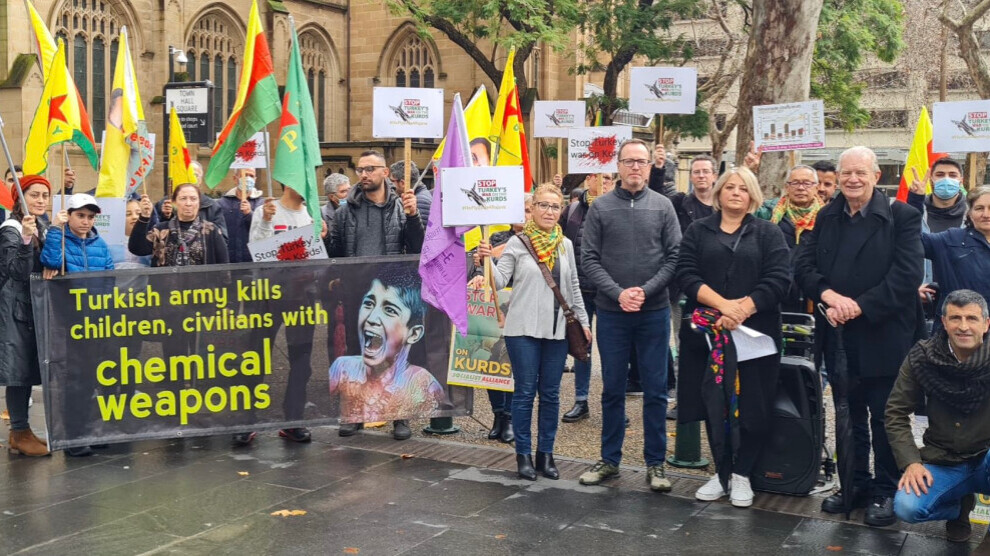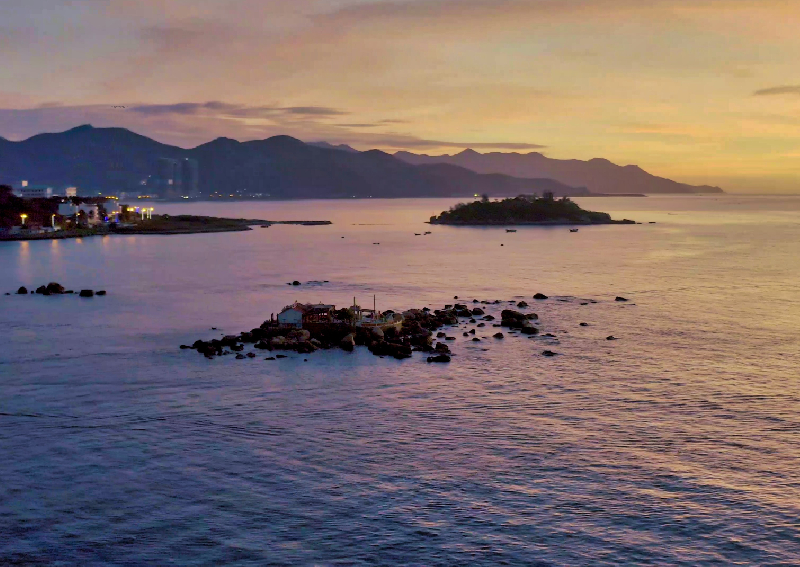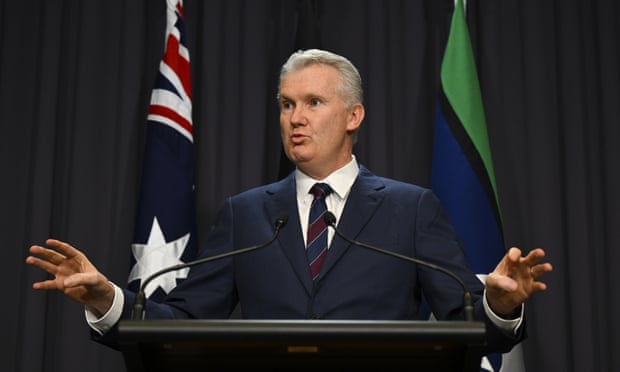Iraqi Foreign Minister: There are no PKK forces in the area of the Zakho attack
The Parliament of Iraq has convened for a special session today to discuss the deadly attack with the participation of Chief of Staff, Minister of Defence, Minister of Foreign Affairs and Joint Operations Deputy Commander Abdulemir Shemeri.
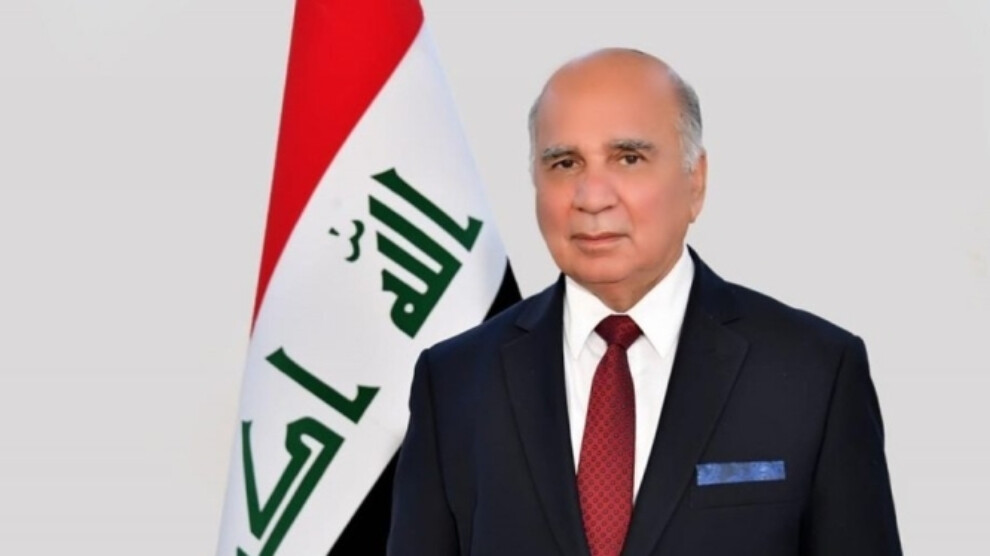
ANF
NEWS DESK
Saturday, 23 Jul 2022,
Nine people were killed and at least 23 injured when the Turkish state bombed a picnic site in the village of Perex in the southern Kurdish district of Zakho on 20 July. The victims include one-year-old Zahra and twelve-year-old Sara. Seven of them had come to Zakho from Baghdad for holidays, two men came from Karbala.
The Parliament of Iraq has convened for a special session today to discuss the deadly attack with the participation of the Chief of Staff, Minister of Defence, Minister of Foreign Affairs and Joint Operations Deputy Commander Abdulemir Shemeri.
Foreign Minister Fuad Hussein stated that, according to the information and documents they have, there are no PKK forces in the area where the attack took place.
The Joint Operations Deputy Commander Abdulemir Shemeri said during the parliamentary session that the attack on the village of Perex had been carried out by the Turkish state forces with 155 mm cannons, from a 7 km distance to the scene.
While Turkey denied involvement and blamed the PKK for the deadly attack which has triggered strong reactions from many states, Fuad Hussein told the press after the massacre that as a result of the investigations carried out by military experts, it was determined that the attack had been carried out by Turkey.
According to the Community Peacemaker Teams (CPT), the artillery fire came from the Turkish military base Xamtir in Xatîrê. CPT representative Kamaran Osman told the Mezopotamya Agency (MA) that they went to the village after the bombing: "We talked to witnesses and wounded people and learned from them that four shots were fired. They confirmed to us that all these four shots were fired from the Turkish military base Xamtir."
Iraqi Joint Operations Command: Deadly attack in Zakho carried out by Turkey
Nine people were killed and at least 23 injured when the Turkish state bombed a picnic site in the village of Perex in the southern Kurdish district of Zakho on 20 July. The victims include one-yea...
ANF News
Iraqi Foreign Minister confirms attack in Zakho carried out by Turkey
The Iraqi Foreign Minister, Fuad Hussein, told the press that as a result of the investigations carried out by military experts, it was determined that the attack on Zakho was carried out by Turkey...
ANF News
CPT: Artillery fire originated from a Turkish military base
Nine people were killed and at least 23 injured when the Turkish state bombed a picnic site in the village of Perex in the southern Kurdish district of Zakho on 20 July. The identities of the victi...
ANF News
Iraq’s anger against Turkey snowballing
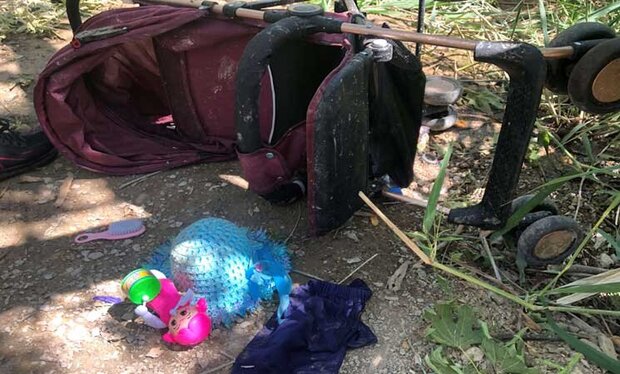
TEHRAN, Jul. 24 (MNA) – A deadly Turkish attack on a civilian resort in a tourism city in Iraqi Kurdistan has unleashed Iraqi wrath against Turkey and laid bare the tenuousness of Turkish influence in Iraq.
On Wednesday, Turkish artillery targeted what they thought was a PKK hideout in Zakho, Dohuk. Nine civilians were killed and 22 others were injured. All the victims were tourists from other parts of Iraq who escaped the blistering summer heat that hit the country’s southern and central governorates to enjoy the mild weather of Iraqi Kurdistan.
The attack drew sharp criticism from almost all segments of Iraqi society and political parties. Iraqis took to the streets to protest the Turkish attack. Angry protestors in Baghdad surrounded the Turkish embassy and brought down the Turkish flags. In other cities, young protestors shut down Turkish offices issuing visas across the country. Officially, the Iraqi government summoned the Turkish ambassador to Baghdad and recalled its chargé d'affaires from Turkey while putting on hold plans to name a new ambassador to Ankara.
Iraq also lodged a protest against Turkey at the United Nations Security Council and requested an urgent meeting of the Security Council to discuss the attack. “The Ministry of Foreign Affairs sent a letter of complaint to the Security Council and asked it to hold an emergency session to discuss the Turkish aggression,” said Ahmad al-Sahaf, spokesman for the ministry.
Of note, United Nations Secretary-General Antonio Guterres called for an urgent investigation into the artillery shelling of Dohuk.
Turkey has stated that it had no involvement in the massacre of civilians in Zakho and that the PKK was responsible. At the same time, it has stated that it is willing to investigate this matter with Iraq.
Although Turkey denied that it conducted the attack, it prompted many Iraqis to call for a reset in Ankara-Baghdad ties. Many Iraqis said Turkey launched the attack based on a security agreement between Baghdad and Ankara. Therefore, the agreement should be revoked. But the Iraqi foreign ministry said there was no such military or security agreement, giving substance to allegations that the Turkish attack lacked any legal basis.
Some Iraqi factions have long demanded the withdrawal of Turkish troops from Iraqi soil. But Turkey has turned a blind eye to this demand, doubling down its military campaign against what it calls PKK forces.
The Zakho attack renewed Iraqi calls for the withdrawal of Turkish troops. It revealed the tenuous nature of Turkish military presence in Iraq from a political point of view as no Iraqi party dared to openly voice support for Turkey in recent days.
The attack also provided the Iraqi Kurdistan region with an opportunity to mobilize Iraqi public opinion against Turkish military operations in the region. On Saturday, Deputy Prime Minister of the Kurdistan Regional Government, Qubad Talabani, revealed the death toll from the Turkish bombing of the region's lands over the past years. Talabani strongly pushed for the bloody Zakho crime to be a motive to unify the position among the political parties, according to the Iraqi television channel Al Sumeria.
He pointed out that “more than 100 civilians (martyred) in the past few years due to the continuous bombing, without the federal government taking a serious position, and without translating statements of condemnation into a deterrent measure that stops the bloodshed.”
The Iraqi Kurdish official added, “If the federal government and political forces had taken firm positions since the first targeting, and since the first soul was killed without guilt, we would not have witnessed the tragedy of the past few days.”
First published in Tehran Times
Two Iraqi groups threaten to attack Turkey's soil
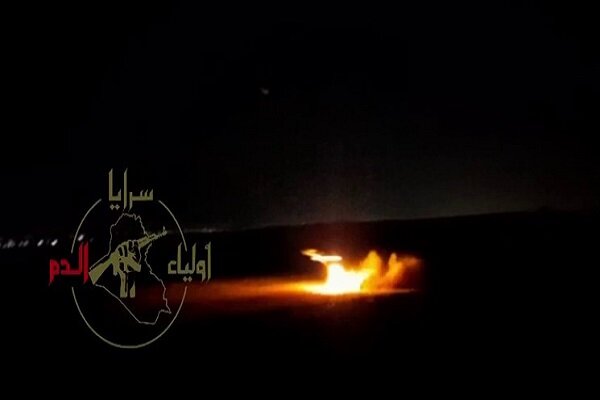
TEHRAN, Jul. 23 (MNA) – Two unknown groups claimed responsibility for the attack on Turkish bases in northern Iraq and warned that if the Turkish military does not leave Iraq, further operations will be carried out on Turkish soil.
The Kurdish-language media in Iraq reported on Friday afternoon that a Turkish base located in Iraq's Kurdistan region was targeted with two drones.
The attack on the Turkish base was carried out in the north of Dohuk province, according to the source.
Two unknown groups who identified themselves as Iraqis claimed responsibility for the attack on Turkish bases in the Kurdistan region of Iraq.
The mentioned group announced on its Telegram channel by releasing a video that it claims responsibility for the special operation which was carried out with a number of long-range drones against the Turkish base in Bamarni district of Dohuk province.
"If the Turkish forces do not withdraw from the territory of Iraq, our next attacks will be inside the territory of Turkey," the group warned.
On the other hand, another group announced in a statement that it claims responsibility for the rocket attack on the Turkish base of Zelikan.
The Kurdistan Counter-Terrorism Center of Iraqi Kurdistan announced in a statement last night that the Zelikan base was attacked with three rockets, But no one was injured.
These attacks have been carried out after Iraqi sources reported on Wednesday afternoon that several civilians were killed and injured during a Turkish artillery attack on the north of Iraq.
Although the Baghdad authorities insist that the attack was carried out by Turkish forces and that they are responsible for the deaths and injuries of Iraqi civilians, Ankara says that the country's forces did not attack civilians.]
Guerrillas hit Turkish forces in retaliation for Zakho massacre
HPG and YJA Star guerrillas dedicate their latest actions "in the name of brotherhood" to the civilian victims of the Turkish attack on Zakho.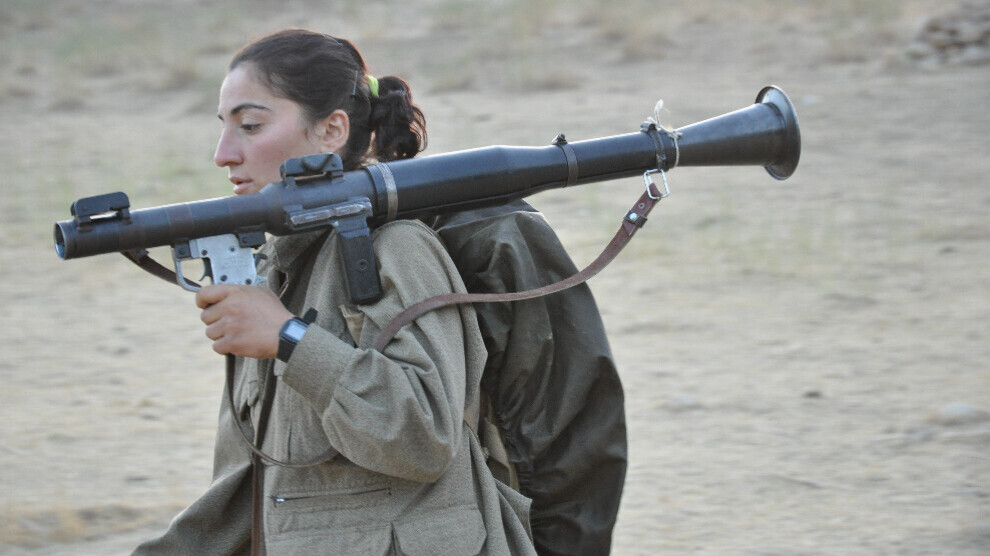
ANF
BEHDINAN
Sunday, 24 Jul 2022,
The People's Defense Forces (HPG) and the Free Women's Troops (YJA Star) have dedicated their recent retaliatory actions against the Turkish army to the civilian deaths in Zakho. "The Freedom Guerrilla of Kurdistan has become the hope of all oppressed peoples and continues its legendary struggle uninterruptedly. In the name of brotherhood, our guerrilla forces have carried out a series of actions to avenge the nine innocent people murdered in Zakho by the Turkish state. At least four occupants were punished and one injured in the actions of our mobile units. Two positions, a drone and a surveillance camera were destroyed and an armoured vehicle was damaged," the HPG Press Centre said in a statement it released on Sunday.
Guerrilla positions attacked with chemical weapons
According to the HPG statement, the Turkish army used chemical weapons and explosives five times against guerrilla positions in the contested Girê Amêdî area on Saturday. The guerrilla areas were bombed a total of eleven times by fighter jets and 33 times by attack helicopters, and dozens of attacks were carried out with heavy weapons, howitzers and mortars. "The Turkish army uses all kinds of war technology and attacks our comrades in their positions and tunnels with banned chemical weapons. Because it does not achieve any results with this, it has meanwhile started to attack the resistance positions with armoured vehicles and excavators. However, the Turkish occupation forces cannot break the Apoist will and the spirit of sacrifice, no matter what technique they use," said the HPG.
Guerrilla actions in Zap
In the Zap region, guerrillas hit a Turkish unit trying to advance in the Çemço area at 5.30 and 6am today. One soldier was killed and another injured.
On Saturday, guerrillas carried out actions in the resistance area of Şikefta Birîndara. An armed drone was shot down by the guerrillas in an attack flight, and a surveillance camera was destroyed by YJA Star fighters. An advancing armoured car was damaged in a sabotage action at 6 am. At noon, Turkish troops tried to destroy a guerrilla position with a shovel, facing intervention from guerrillas with heavy weapons. In the evening, a Turkish military position was destroyed by guerrillas with heavy weapons.
Airdrop operation at Girê Amêdî foiled
On Friday evening, the guerrillas successfully intervened against a helicopter attack and an airdrop operation at Girê Amêdî. On Saturday, guerrillas carried out two actions of sabotage against advancing Turkish units.
YJA Star fighters hit Turkish military base
YJA Star snipers shot dead a soldier at Girê FM on Saturday. Shortly before midnight, mobile female fighters struck the Turkish base Kanî Masî in Metîna, destroying a military position and killing two soldiers.
Footage of an action carried out by the Martyr Bedran Gundikremo Vengeance Unit teams against the Turkish invading forces at Girê Amêdî in southern Kurdistan (northern Iraq) has been released.
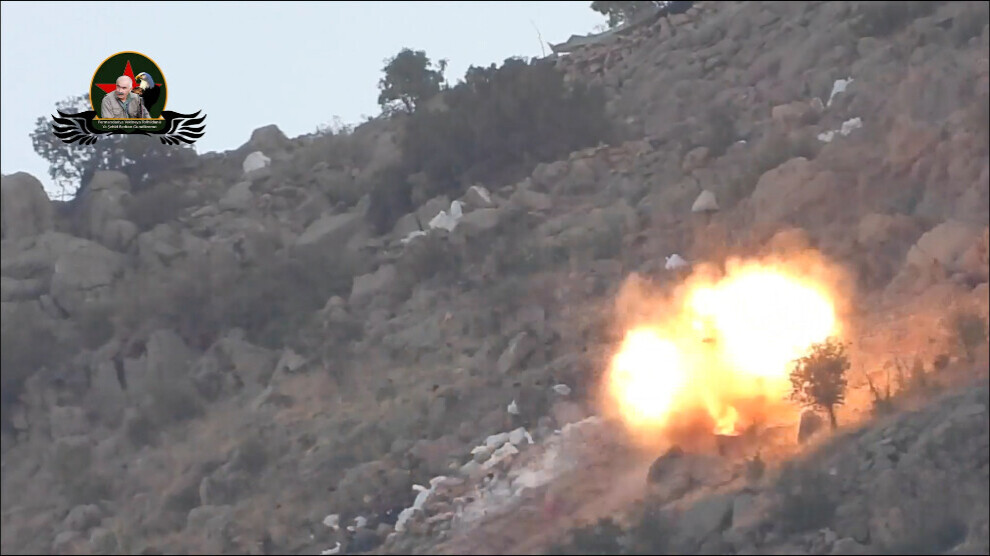
ANF
NEWS DESK
Saturday, 23 Jul 2022, 11:54
Martyr Bedran Gundikremo Vengeance Unit released footage of the action carried out by their units against the Turkish invading forces at Girê (Hill) Amêdî with heavy weapons at 5.20 am on 21 July. In the video published on Saturday, soldiers can be seen fleeing in panic.
The Girê Amêdî in the west of the Zap region in guerrilla-held Medya Defense Zones has been fiercely contested since the beginning of July, and the Turkish army has expanded its occupation operation into the region west of the Zap. In the resistance area of Girê Amêdî near the district of Amadiya in Duhok governorate, the Turkish army airdropped troops 31 times on 4 July after massive air strikes. The guerrillas continue to resist the occupation.
The revenge unit named after Bedran Gundikremo (Sait Tanıt, also known as Bedran Cûdî) repeatedly carries out actions targeting Turkish bases in southern Kurdistan. Gundikremo was a long-time freedom fighter and guerrilla commander from Şırnak in northern Kurdistan. He was martyred in a Turkish air strike in Amadiya in April 2017 together with his son and three other fighters.
HDP Amed MP Dersim Dağ drew attention to the invasion attacks and the Zakho massacre carried out by the Turkish state in cooperation with the KDP, and said that the targets of the attacks were the gains of the Kurds.
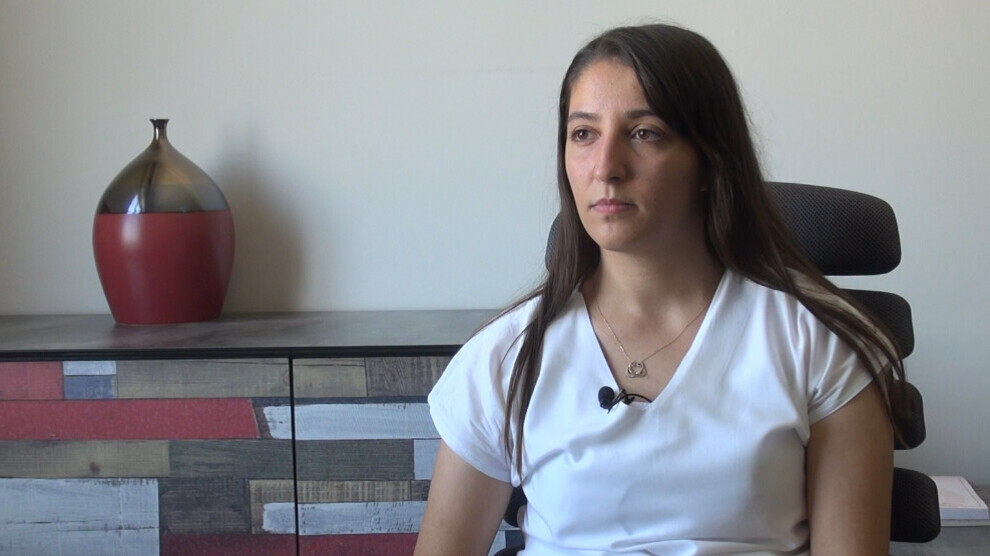
ANF
AMED
Sunday, 24 Jul 2022,
HDP Diyarbakir MP Dersim Dağ said that the KDP has become the projection of the AKP-MHP in South Kurdistan and added: "The KDP is opening its land to invasion attacks. The KDP has never partnered so much with the AKP-MHP alliance. In this sense, they are also responsible for the massacres carried out by Turkey in South Kurdistan."
Turkey continues to attack South Kurdistan and on 20 July carried out a massacre in Zakho. Nine people were killed, including children, and many were injured.
Dağ told ANF that many attacks against South Kurdistan have taken place in the last year and added that the target of the attacks were the gains of the Kurds and and the Kurdish Freedom Struggle.
'KDP is the projection of the AKP-MHP'
Dağ continued: “There was an attack carried out jointly by the AKP-MHP and the KDP. The KDP is opening its lands to invasion. Today, the policies of AKP-MHP, not KDP, are in effect in South Kurdistan. The Turkish state is attempting to occupy that land by maintaining its physical presence.”
'The target is the gains of the Kurds'
Underlining that the attacks carried out in Kurdistan in general are "attacks to complete the Kurdish genocide", Dağ said: "This war is a war against the Kurdish people. Although the KDP does not want to see this, we see that these attacks are aimed at the gains of the South Kurdish people. Because we saw what kind of reaction Turkey had after the independence referendum. Although these attacks are portrayed as an attack on the Kurdish Freedom Struggle, it should be known that they are basically a product of the policy of completing the Kurdish genocide throughout Kurdistan. Because, on the centenary of the Turkish republic, we see that an effort to rebuild the borders of the National Pact is in effect. These attacks are part of the rhetoric that 'Mosul and Kirkuk are Turkish cities', something Turkey repeats at every opportunity."
'Kurds will not forget KDP's betrayal'
HDP Amed MP Dersim Dağ added: "Civilians have always lost their lives in previous attacks. Today, we are faced with the same situation in Zakho. The KDP did not react firmly to this massacre. In this sense, the KDP is also responsible for these massacres. The Kurds will never forget the attitude of the KDP. The Kurds themselves will hold them accountable. When the day comes, the KDP will have to face the Kurdish people. The KDP will remain a black stain on Kurdish history. The Kurds will not forget the KDP's betrayal and sooner or later they will ask for account.”
The fact that the Turkish state is occupying more and more parts of southern Kurdistan and carrying out massacres is the result of the political and social division in Iraq. Iraq must end the Turkish occupation.
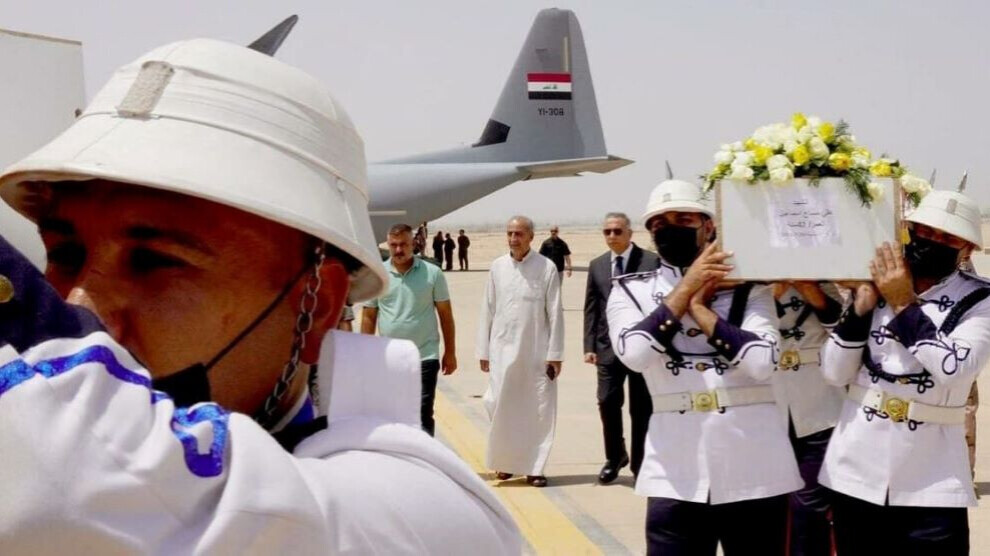
NAHİDE ERMİŞ
HEWLÊR
Saturday, 23 Jul 2022
On the seventh anniversary of the Suruç attack, the colonialist Turkish state forces carried out another massacre in the village of Perex in the Bamerne district of Zakho in southern Kurdistan (northern Iraq). There was a storm of indignation in the region following the deaths of numerous Arab people from Baghdad and neighbouring provinces who were shot at by howitzers during a picnic at a touristic site.
Nine months have passed since Iraq's parliamentary elections on 10 October 2021. In those nine months, neither a government could be formed, nor a president elected because of direct or indirect interventions by the powers that wanted to gain political influence in Iraq.
In 2003, a federal Iraqi state was established in place of the fascist Ba'athist regime that ended with the execution of Saddam Hussein. During this period, the political map of Iraq, which consisted of only one actor, changed and rebuilt itself. The main dynamic of Iraqi politics started a war to gain a stronger role in the Iraqi state and government, which transformed into a federal structure, making the current delicate process even more fragile. The fragmented and cooperative understanding of politics among the forces that form the backbone of the state led to the development of a new political culture. Thus, two different axes began to emerge in domestic politics.
On the one hand, the axis representing the interests of USA-friendly states like Turkey in the Middle East, and on the other hand, the axis led by Iran but also including the Eastern bloc powers with the same imperial goals. The new situation that emerged with the US intervention served mainly to expand Iran's sphere of influence, while the US was demonised more and more every day, as all its interventions in the region were to the detriment of the peoples. The seeds for today's chaos in Iraq were sown during this period.
Three main elements in Iraq
In this new era, the traditional political forces, the religious and ethnic structures of Iraq, began to divide their influence and military power among themselves. However, the division of power has exacerbated the conflicts instead of resolving them.
In the current situation, the three main elements and determinants of Iraq's internal politics, which has become open to foreign intervention, are Shiites, Kurds and Sunni Arabs. These forces also form the deepest fault lines in Iraqi politics. The fragmentation of each of these structures into parts within themselves and the fact that each part considers itself the main force on its respective front has led to serious contradictions and irreconcilable differences. When this situation is combined with the deep structural problems of the country and the endless interventions of foreign powers, it naturally leads to a multiple crisis that spreads to all spheres of life. The real cause of the crisis remains the unresolved structural problems of the state.
Since 2003, a balance of power has been established in the state of Iraq in accordance with the constitutionally guaranteed distribution of power, with the Kurds as president, the Sunnis as speaker of parliament and the Shiites as prime minister. Over time, however, the Shiites have split and fragmented as pro-Iran and pro-Saudi Arabia, increasing the number of parties and groups vying for the post of prime minister. The separate aspirations of the Kurdish parties for the presidency have also sparked a new struggle and led to a split between the various fronts.
This internal fragmentation, the internal rivalries of the increasing number of parties and groups and the problems caused by these rivalries have led to a situation of constant political conflict. This division and tension on the Kurdish and Shiite fronts have weakened the search for a common sense negotiated solution due to the subjective conditions, and the solution has been seen in social and military empowerment. These structures, which used to operate mainly with national and religious sentiments, have over time replaced the power and motivation for national will building with party and group interests. The same mentality and politics developed in other Sunni and Kurdish political structures, and this fragmentation of politics was reflected as greater chaos and crisis at the grassroots level of society.
Internal division opens up space for the Turkish state
The people are in the middle of a war movie that has no finale and whose script was written by well-known hegemonic powers. All the other peoples of the region, especially the Iraqi people, have been made participants in this war that is not in their interest. The idea that whoever is not a party in the Middle East will be eliminated is indeed a very dominant idea. And that is not wrong. However, in the current situation, people see the people and actors who put the interests and concerns of foreign powers first and have an understanding of politics that serves their own family, party and dynastic interests second, as the main reason for the social chaos and crisis they are in.
So the fact that today the Turkish state is occupying ever larger parts of Southern Kurdistan, establishing military bases, causing massacres in towns and villages with artillery and air strikes, and that Iraq is unable to show a deterrent reaction to this as a state, is precisely the result of this internal political and social division.
If Iraq really does not want the Zakho massacre to be repeated and if it wants to end the current state of occupation by the Turkish state, it must adopt a more resolute stance. Otherwise, the anti-people policy of the Turkish state will be the cause of even more suffering and losses, and the Turkish state will become a permanent occupying power in Iraq.
It should also be known that the massacre of Zakho is a continuation of the massacres of Kendakolê in 2000, Kortek in 2011 and Zergelê in 2015. If those responsible are to be held accountable and new massacres prevented, the current occupation of the Turkish state in southern Kurdistan must be ended.
According to the Community Peacemaker Teams, the attack on Zakho, which killed nine people, came from the Turkish military base of Xamtir in southern Kurdistan. The youngest victim is one-year-old Zahra.
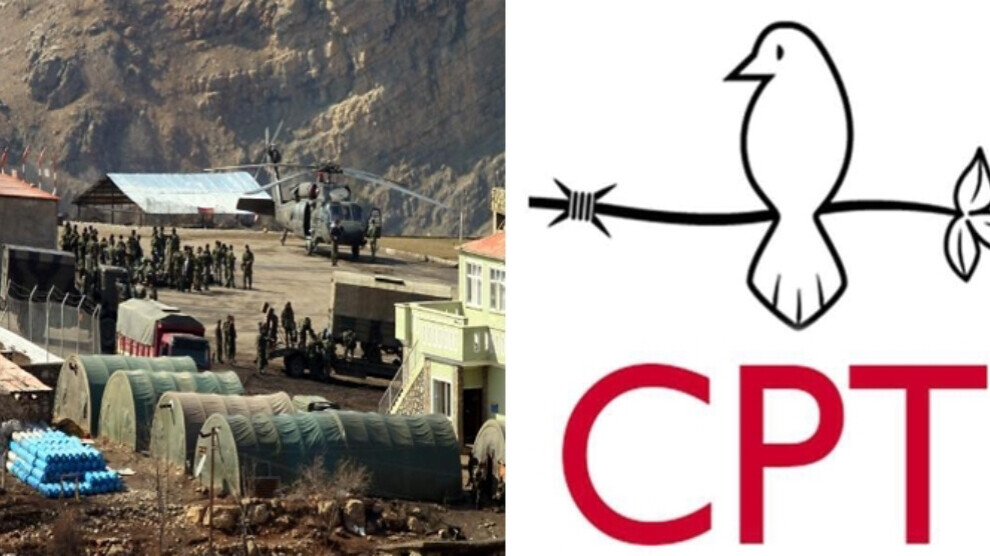
ANF
NEWS DESK
Thursday, 21 Jul 2022
Nine people were killed and at least 23 injured when the Turkish state bombed a picnic site in the village of Perex in the southern Kurdish district of Zakho on 20 July. The identities of the victims have since been released, including one-year-old Zahra and twelve-year-old Sara. Seven of them had come to Zakho from Baghdad for holidays, two men came from Karbala.
According to the Community Peacemaker Teams (CPT), the artillery fire came from the Turkish military base Xamtir in Xatîrê. CPT representative Kamaran Osman told the Mezopotamya Agency (MA) that the area had been shelled four times by artillery. There were 30 families living in Perex, Osman said: "In June 2020, during the Claw Eagle and Claw Tiger operations, Turkey established two military bases in Xatîrê; Xamtir and Girê Kuxe. The bombardment on Wednesday was carried out from the Xamtir military base. There were four artillery strikes. Nine Arab tourists were killed in the attack. The ages of the dead ranged from 1 to 71. 23 people were injured."
Residents urged by the Turkish military to leave the village
Osman continued: "First of all, the location of the shelling provides enough concrete evidence. But there is also a precursor to this. This is not the first time this has happened. Last month, Turkish soldiers from the same military base came to the village of Perex, went door to door and asked the residents to leave. Of the eleven villages in the area, only the residents of Perex did not leave their village. The other villages were evacuated. As I said earlier, the soldiers also came to the village in June. But the villagers of Perex resisted and refused to leave the village. They then carried out a bombardment from the same military base on 15 June. Two people were injured in this attack. One of them is named Nazir Omar and the other is Mohammad Wazir Omar. However, the villagers continued to refuse to leave the village. And, a massacre took place. We can openly call it a massacre. There are more than 30 victims of this attack."
Talking to eyewitnesses and the wounded
Osman said that they went to the village after the bombing: "We talked to witnesses and wounded people and learned from them that four shots were fired. They confirmed to us that all these four shots were fired from the Turkish military base Xamtir."
The CPT is demanding that Turkey stop the attacks and that the Iraqi central government and the Kurdish regional government effectively protect the population: "Yesterday, we as the CPT issued a written press release. We have forwarded this text to the Kurdistan Regional Government and various consulates in Europe. We will continue to do so. We want the obvious facts to be seen," said Kamaran Osman.
According to the CPT, 138 civilians have been killed by the Turkish military in Iraqi Kurdistan since August 2015.
CPT: Turkey kills civilians under the auspices of 'Claw-Lock' operation
The Turkish Armed Forces (TAF) launched a new military campaign codenamed ‘Claw-Lock’ within Iraqi Kurdistan on 17 April 2022, with the aim of attaining total military control over the mountainous ...
ANF News


